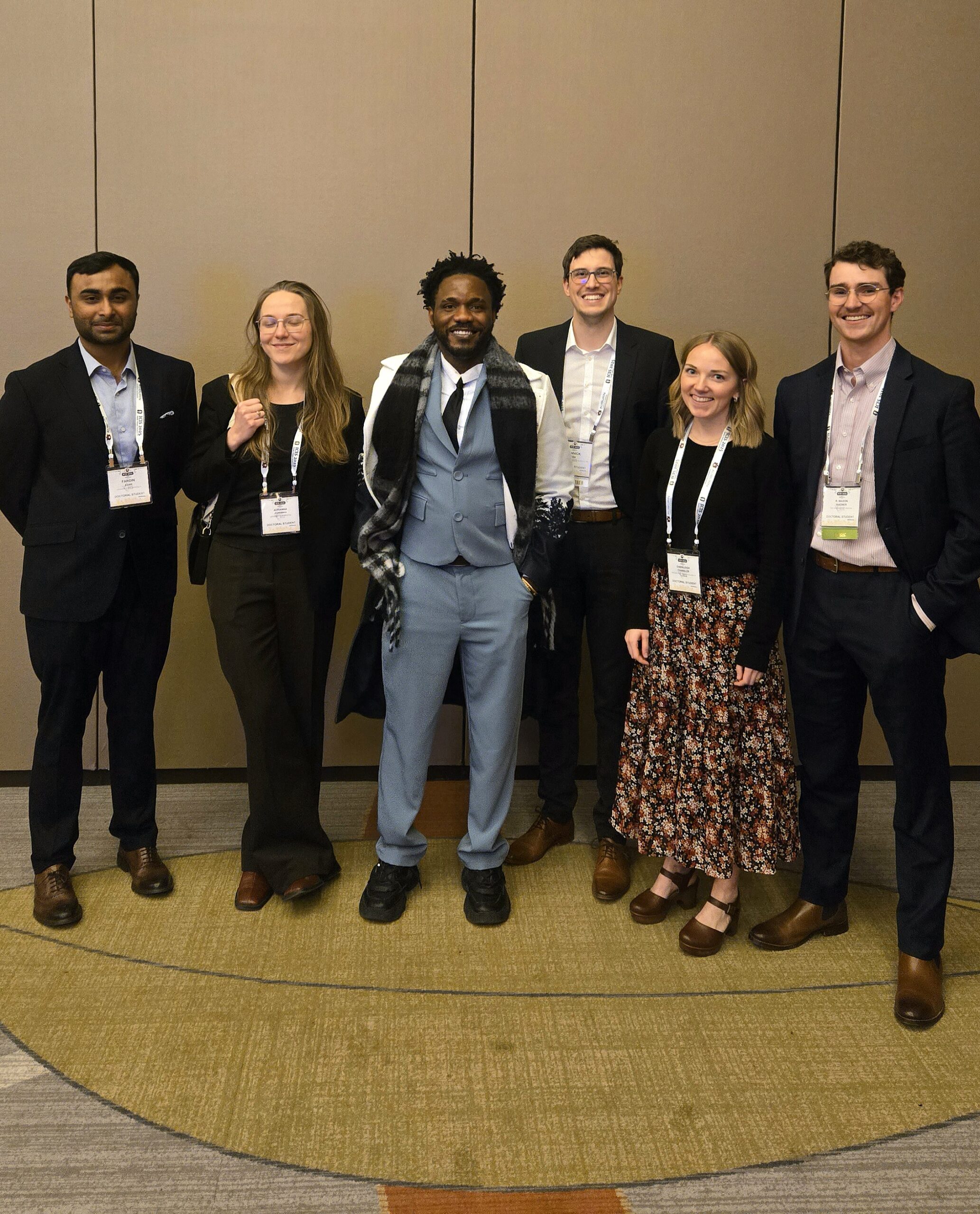Today, I read this research paper on generating interesting research questions through problematization. The paper is by Alvesson and Sandberg (2011). As always, I am trying to make it a habit to write down my thoughts on the papers I read and, if possible, create a video about them. Since there isn’t much consumer-facing content in the social sciences, I strive to make this blog a go-to destination for that.
The paper critiques the prevalent practice of “gap-spotting” in management research and argues that this approach only leads to incremental, less impactful research. I personally agree with this. During my first year as a PhD student, we were always told to come up with research topics only when we spotted a gap in the available literature. Reading this paper strengthened my resolve to believe that researchers should also generate research questions through problematization.
Explaining Gap-Spotting
To explain further, traditional research typically follows a specific path involving gap-spotting. Researchers carefully read existing research papers, identify small gaps in knowledge, and design studies to fill those gaps. While this approach can lead to incremental advancements in knowledge, it rarely results in big breakthroughs or generates truly novel insights that could reshape the field.
Problematization as an Alternative
What if research chooses to take a different approach, which the paper calls “problematization”? Instead of looking for gaps to fill, researchers question the basic assumptions that underlie existing theories. For example, when studying how employees identify with their organizations, instead of just measuring the strength of identification, researchers could ask more fundamental questions:
- Do employees really see themselves primarily as organizational members?
- Is organizational identification stable, or does it shift based on context?
- Are we taking for granted things that should be questioned?
This approach of challenging assumptions is more likely to generate interesting and influential theories. However, it is harder to do and professionally riskier. The authors go on to provide a systematic methodology to help researchers like myself effectively challenge assumptions.
What is Problematization?
Problematization, as defined by Wikipedia, is “a process of stripping away common or conventional understandings of a subject matter in order to gain new insights.” Problematization involves critically questioning the taken-for-granted truths and assumptions that underpin existing theories and perspectives. It seeks to deconstruct established knowledge to reveal hidden biases, limitations, and alternative interpretations. By challenging the status quo, problematization opens up new avenues for exploration and understanding.
In research, problematization is not merely about identifying problems or issues. It is about actively questioning how those problems are framed, whose interests they serve, and what alternative perspectives might exist. This process of critical inquiry can lead to the generation of novel research questions that challenge conventional wisdom and contribute to the development of more nuanced and insightful theories.
The Steps in Problematization
Problematization is like being a detective in your own field. It involves the following steps:
- Picking a Topic
Choose a particular area of study, like how companies manage identity or culture. - Finding Hidden Assumptions
Every theory or study stands on certain beliefs or assumptions about how things work, how people behave, or even what reality is. For example, do we assume companies have a clear, stable identity, or is this an oversimplification? - Challenging These Assumptions
Look critically at these beliefs. Are they always true? What if we looked at things from a completely different angle? - Formulating New Questions
Based on this critical examination, generate new questions that might lead to more interesting or useful theories. For instance, instead of asking how to strengthen company identity, ask, “Do companies even have a single identity?” - Considering the Audience
Ask yourself: Who will find these new questions interesting or even controversial? Will these new questions lead to theories that are seen as groundbreaking, or will they just seem odd or irrelevant?
The Importance of Problematization in Research
Traditional approaches to generating research questions often rely on gap-spotting, where researchers identify areas where existing literature is lacking or where contradictory findings exist. While this approach can be useful, it often leads to incremental contributions that merely build upon existing knowledge without fundamentally challenging its foundations. As Alvesson and Sandberg (2011) argue, gap-spotting often involves “identifying competing explanations, scanning for overlooked areas, or searching for shortages of a particular theory or perspective in existing literature.” This can limit the potential for truly innovative and impactful research.
In contrast, problematization encourages researchers to question the very foundations of existing theories and perspectives. This can lead to more impactful research that generates new insights, challenges conventional wisdom, and opens up new avenues for exploration. By questioning underlying assumptions, researchers can uncover hidden biases, limitations, and alternative interpretations that may have been overlooked in previous studies.
A Framework for Generating Research Questions Through Problematization
The process of generating research questions through problematization can be broken down into several key steps:
| Step | Description | Example |
| Identify a Domain for Investigation | Begin by selecting a specific area of interest within social or management science. This could be a particular phenomenon, theory, or body of literature that you find intriguing or problematic. | The concept of organizational culture and its impact on employee motivation. |
| Identify Assumptions within the Domain | Once you have selected a domain, carefully examine the underlying assumptions that shape the dominant perspectives and theories within that area. These assumptions may be explicit or implicit, and they may relate to concepts, methodologies, or values. | A common assumption in organizational culture research is that a strong culture leads to increased employee motivation. |
| Evaluate Assumptions | Critically assess the validity and limitations of the identified assumptions. Consider their historical context, their potential biases, and their implications for research and practice. | Is the assumption that a strong culture always leads to increased motivation universally true? Could there be cases where a strong culture actually hinders motivation? |
| Develop Alternative Assumptions | Explore alternative ways of understanding the phenomenon or issue under investigation. Consider different theoretical lenses, perspectives, or methodologies that might challenge the dominant assumptions. | Perhaps a strong culture can lead to decreased motivation if it stifles creativity or dissent. |
| Formulate Research Questions | Based on your critical analysis and the exploration of alternative assumptions, formulate research questions that directly challenge the status quo and open up new avenues for inquiry. These questions should be clear, focused, and complex, and they should have the potential to generate new insights and contribute to the development of more nuanced theories. | Under what conditions might a strong organizational culture lead to decreased employee motivation? How do different types of organizational cultures impact employee motivation in diverse contexts? |
| Consider Assumptions in Relation to Audience | Reflect on how the assumptions and alternative perspectives you have identified might resonate with different audiences. Consider the implications of your research for different stakeholders and how your findings might challenge their existing beliefs or practices | Managers might be resistant to the idea that a strong culture could be detrimental to motivation. Researchers might be more open to challenging existing assumptions. |
| Evaluate Alternative Assumptions | Critically assess the strengths and weaknesses of the alternative assumptions you have developed. Consider their potential biases, their limitations, and their implications for research and practice. | The assumption that a strong culture can hinder motivation might be biased towards individualistic cultures and may not apply in collectivist cultures. |
Types of Assumptions Explored in the Paper
Mats Alvesson and Jörgen Sandberg identify several types of assumptions present in academic research. These assumptions form the basis of existing theories but are rarely questioned:
- In-House Assumptions
- Definition: Assumptions specific to a particular school of thought or theoretical perspective.
- Example: Leadership studies often assume leadership is based on individual traits like charisma or decision-making ability.
- Challenge: What if leadership is less about inherent traits and more about the context, such as the social or organizational environment?
- Root Metaphor Assumptions
- Definition: Broader assumptions stemming from underlying metaphors used to describe phenomena.
- Example: Organizations are often conceptualized as “machines” or “families,” implying stability and predictability.
- Challenge: What if organizations are more like ecosystems, characterized by constant flux and ambiguity?
- Paradigm Assumptions
- Definition: Deeper philosophical assumptions about ontology (what exists) and epistemology (how we know).
- Example: Rationalistic paradigms assume employees act logically to maximize efficiency.
- Challenge: What if decisions are often irrational, driven by emotions or biases?
- Ideology Assumptions
- Definition: Assumptions tied to political, moral, or cultural beliefs embedded in research.
- Example: Motivation research often assumes external rewards like money drive behavior.
- Challenge: What if intrinsic motivations, such as creativity, are more significant?
- Field Assumptions
- Definition: Broad assumptions shared across disciplines.
- Example: The belief that organizations have a clear identity.
- Challenge: What if organizational identity is fluid or context-dependent?
- Additional Assumptions
- Assumption of Stability: Many theories assume concepts like identity or culture are stable. Problematization questions this and explores how these concepts are dynamic and situational.
- Assumption of Homogeneity: Research often assumes phenomena affect all groups similarly, overlooking cultural or organizational differences.
- Assumption of Simplicity: Problematization encourages a deeper exploration of complex relationships rather than oversimplifying them.
How These Assumptions Interact
The authors emphasize that many of these assumptions are interconnected. For example:
- Paradigm and Root Metaphor Assumptions: Viewing organizations as machines reinforces rationalistic paradigms.
- Ideological and Field Assumptions: Beliefs about individualism and competition align with field-wide assumptions in management studies.
Conclusion
Generating research questions through problematization is a powerful approach that can lead to more impactful and insightful research in social and management sciences. By critically examining and challenging underlying assumptions, researchers can uncover hidden biases, limitations, and alternative interpretations that may have been overlooked in previous studies. This process can stimulate new lines of inquiry, contribute to the development of more nuanced theories, and ultimately lead to a deeper understanding of social and organizational phenomena.
Problematization encourages researchers to move beyond simply describing or explaining social phenomena and to engage in more critical and reflexive research practices. It challenges dominant paradigms and encourages researchers to consider alternative perspectives, leading to a more comprehensive and nuanced understanding of the social world. Furthermore, by uncovering hidden power dynamics and challenging taken-for-granted assumptions, problematization can contribute to social change by promoting more equitable and just practices.










Leave a Reply